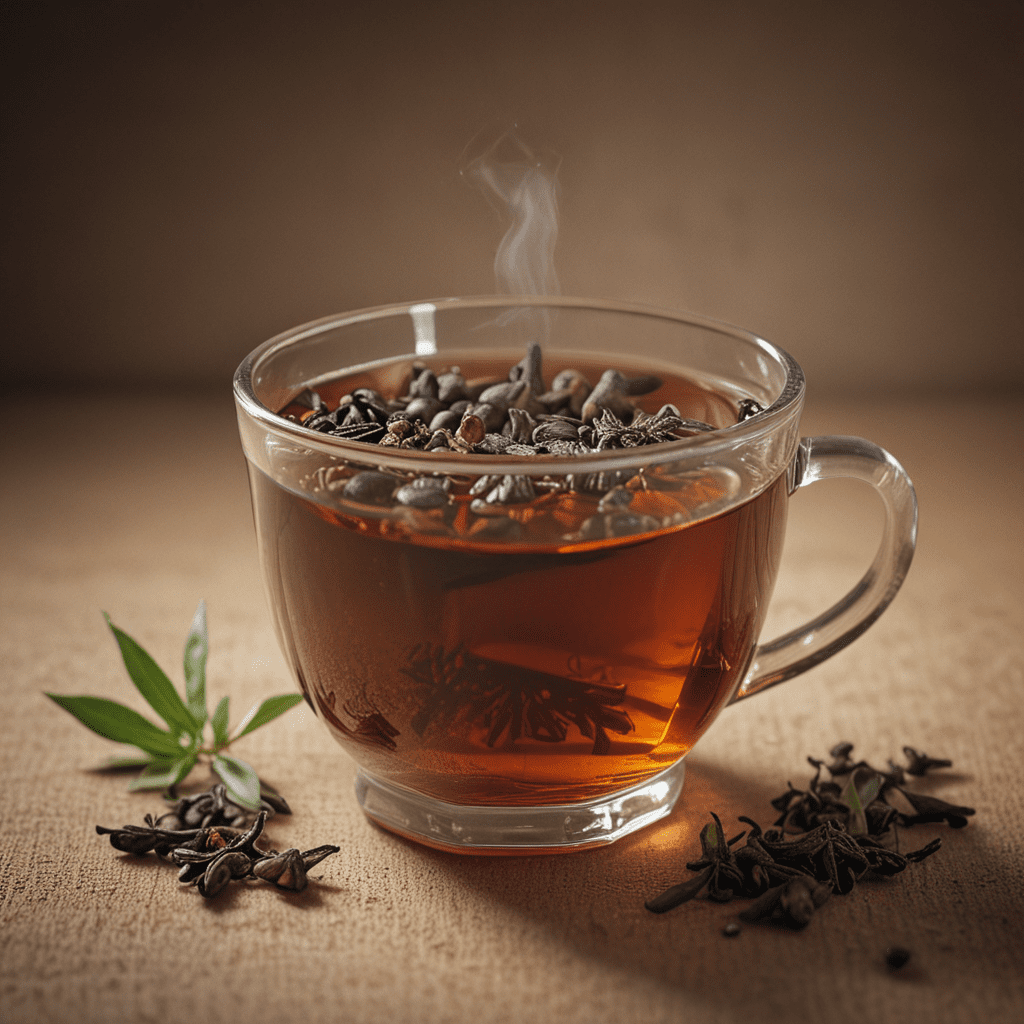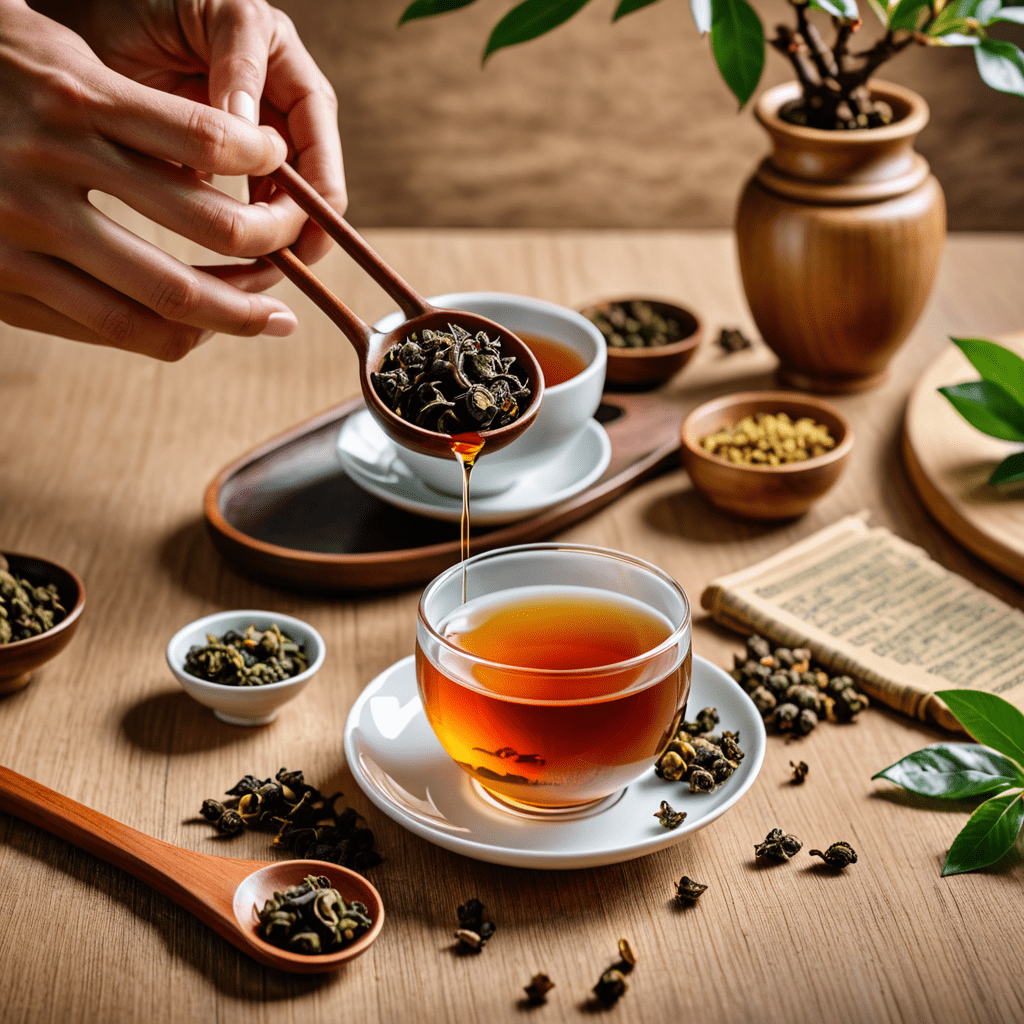
1. Introduction to Assam Tea: A Culinary Delight
Assam tea, a symphony of flavors and aromas, captures the essence of India's vibrant tea culture. Grown in the lush Brahmaputra Valley, nestled at the foothills of the Himalayas, Assam tea has captivated tea enthusiasts worldwide with its robust character and distinctive malty notes.
2. The Origin and History of Assam Tea
The history of Assam tea dates back to the 19th century, when British planters discovered wild tea plants growing in the region. These plants, native to the forests, exhibited exceptional qualities, and their cultivation soon commenced. Assam tea plantations expanded rapidly, transforming the landscape and establishing the region as a global tea producer.
3. The Unique Geographic and Climatic Conditions
Assam's unique geography and climate play a pivotal role in shaping the character of its tea. The Brahmaputra Valley, with its rich alluvial soil and abundant rainfall, provides an ideal environment for tea cultivation. The valley's proximity to the Himalayas ensures cool nights and warm days, further enhancing the growth and flavor development of the tea leaves.
4. Varieties of Assam Tea: A Spectrum of Flavors
Assam tea offers a diverse range of varieties, each with its own distinct flavor profile. From the full-bodied and malty Assamica cultivar to the floral and citrusy China cultivar, there's an Assam tea to suit every palate. The region's tea gardens meticulously blend different cultivars to create unique and harmonious flavors.
5. The Art of Tea Cultivation: A Journey to Perfection
The cultivation of Assam tea is a labor of love, requiring meticulous care and attention. Tea bushes are nurtured with regular pruning to promote optimal growth and flavor development. The harvesting process, traditionally carried out by hand, is timed precisely to capture the peak flavor maturity of the leaves.
6. Assam Tea Processing: Transforming Leaves into Gold
Assam tea processing involves several intricate steps that transform the freshly harvested leaves into the flavorful beverage we know and love. First, the leaves undergo a process called withering, where they are spread out to lose moisture and develop their characteristic aroma. Next, they are rolled, either by machine or by hand, to release their juices and shape them into the familiar black tea leaves. The leaves are then oxidized, a process known as fermentation, which develops their distinctive dark color and robust flavor. Finally, they are dried to remove any remaining moisture and preserve their quality.
7. Brewing the Perfect Cup of Assam Tea
To fully appreciate the exceptional character of Assam tea, it is essential to brew it with care. Ideally, use freshly drawn spring water, which is free from impurities and minerals that can alter the tea's taste. Heat the water to a temperature just below boiling (around 200°F/93°C) and pour it over the tea leaves. Allow the tea to steep for 3-5 minutes, depending on your desired strength. Adding milk or sugar is a matter of personal preference, but many Assam tea enthusiasts prefer to savor its natural flavors without additives.
8. The Health Benefits of Assam Tea: A Elixir of Wellness
Assam tea is not only a culinary delight but also a source of numerous health benefits. Its high concentration of antioxidants helps protect cells from damage and may reduce the risk of chronic diseases. Assam tea is also known to improve heart health by lowering cholesterol levels and regulating blood pressure. Additionally, it aids in digestion, boosts the immune system, and has calming effects that promote relaxation and reduce stress.
9. Assam Tea in the World: A Global Tea Sensation
Assam tea has gained international acclaim and is exported worldwide. Its robust flavor and versatility make it a popular choice for blending with other teas, creating unique and flavorful combinations. Connoisseurs and tea enthusiasts around the globe seek out Assam tea for its distinctive character, making it a true ambassador of Indian tea culture.
10. Assam Tea: A Cultural Tapestry and Culinary Heritage
Assam tea is deeply intertwined with the cultural fabric of Assam and India. It is an integral part of traditional ceremonies and social gatherings, where it is shared with warmth and hospitality. Assam tea has also inspired art, literature, and music, showcasing its deep cultural significance. Today, it remains an integral part of India's culinary heritage, savored by tea lovers from all walks of life.
FAQ:
1. What is the difference between Assam tea and other black teas?
Assam tea is known for its robust, malty flavor, which is a result of its unique growing conditions and processing methods. It has a higher caffeine content compared to some other black teas, making it a more energizing and invigorating beverage.
2. How do I store Assam tea properly?
To preserve the freshness and flavor of Assam tea, store it in an airtight container away from light, heat, and moisture. Ideally, keep it in a cool and dry place, such as a pantry or cupboard.
3. Can I use Assam tea in tea blends?
Yes, Assam tea is a versatile tea that can be used in various tea blends. Its robust flavor complements other teas, such as Darjeeling, Earl Grey, and Ceylon, creating unique and harmonious combinations.


